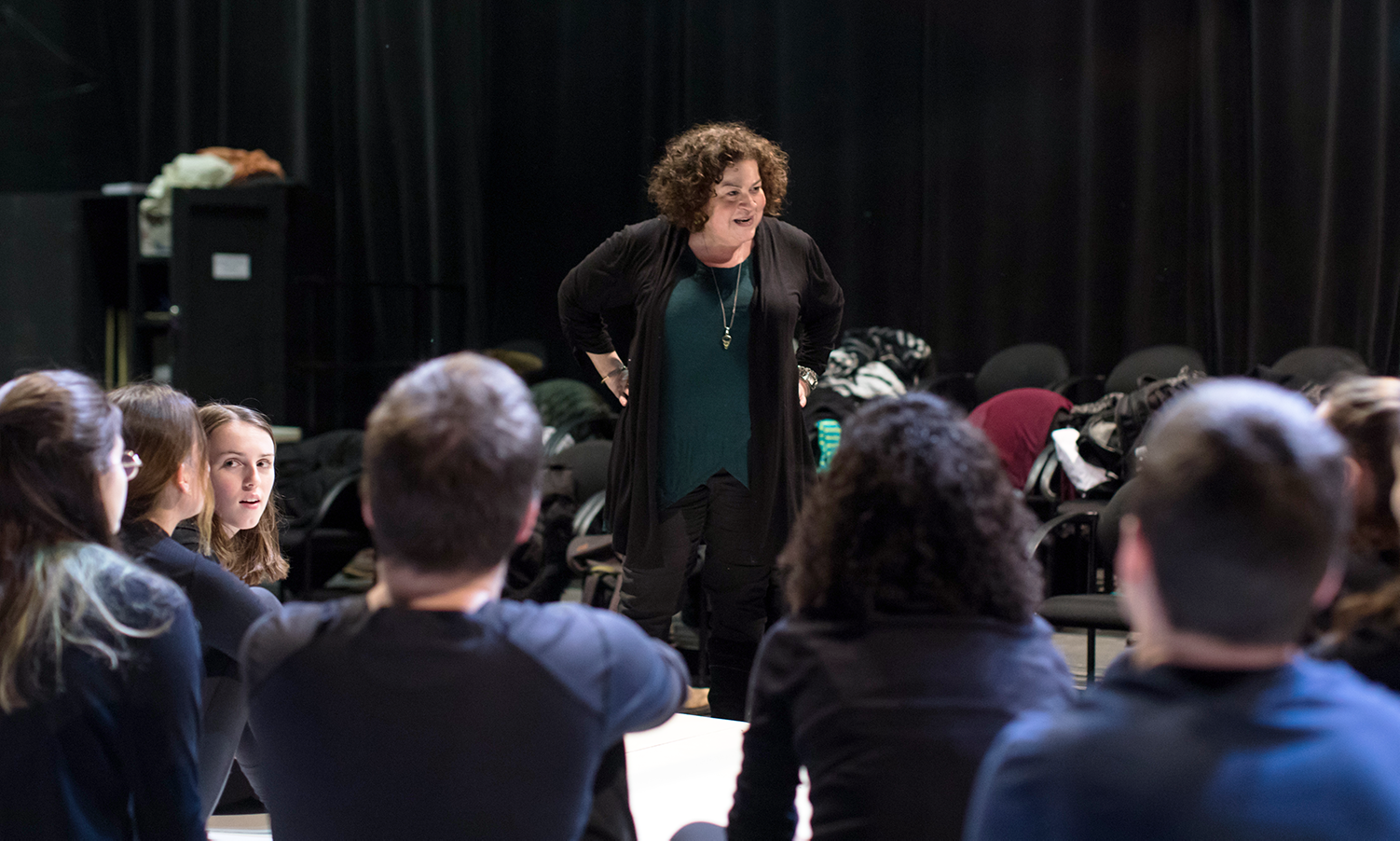Community, Leadership, Experimentation, Diversity, & Education
Pittsburgh Arts, Regional Theatre, New Work, Producing, Copyright, Labor Unions,
New Products, Coping Skills, J-O-Bs...
Theatre industry news, University & School of Drama Announcements, plus occasional course support for
Carnegie Mellon School of Drama Faculty, Staff, Students, and Alumni.
CMU School of Drama
Tuesday, March 24, 2020
Teaching Performing Arts During the Pandemic
HowlRound Theatre Commons: As colleges and universities send students home in the wake of COVID-19, instructors all over the world are scrambling to learn how to use online tools such as Zoom and to become more adept with all the features of course management systems, such as Canvas and Blackboard, in order to answer the mandate to teach remote synchronous courses.
Subscribe to:
Post Comments (Atom)

4 comments:
I really appreciate the work all of our professors have made in this transition to remote learning - and I realize that being in my area (SM/PM) there is a far easier transition to online learning than other areas. My roommate is in costume design and many of her classes rely on studio space and materials - so her capabilities as a student have changed greatly. I realize that this article focuses mainly on the performance aspects and as a bystander to the performing majors here at CMU, I just want to say that you all are very resilient because I cannot imagine the learning curve that comes with transitioning very physical classes into a remote space. The biggest loss from my education that I am realizing is my lack of connection with my classmates. I collaborate with so many people and it is difficult when we have different time zones, have different internet connections and can’t just say, “Let’s meet to talk about this.” Because of this situation I don’t know if I’ll ever take for granted my in-person education again.
Being a part of a conservatory art program, I know how difficult studying can get in a remote learning environment, because now we are studying all all of our practical via a video call, which is really not as effective as is in- person training.
A major component of our program is our involvement in live theater productions so that we have practical experience of the field we have chosen for ourselves before we graduate which is so useful.
However, with the current situation, all productions have been cancelled and the only way to present some aspect of the production is via digital platforms, which is really not that bad. What is sad is the distance that all team members now have as we try to do this, something that we all did in the same room at one point.
But I am hopeful that this situation will get better as time passes.
I have been spending many quarantined hours thinking about the situation that this virus has led the arts community into. On my end in the world of education, the transition to life in a pandemic went much more smoothly than I thought it would. My professors quickly mobilized to make my work digital, and for the most part the only different thing has been the social isolation. But then it’s like, most of my work is paperwork. When I think about my peers in performance particularly, it is hard to understand how their schooling could possibly go online. Having dance lessons at home in your living room? Performing a scene, let alone with other people? How is that even possible? This kind of adapted learning feels so foreign to me, but to the educators mentioned in the article, it seems like just another thing to adjust to. I commend them for finding a creative approach.
My university in Japan announced that they will be starting remote courses from May, after this extended spring break. However, since I am already experiencing online courses by Carnegie Mellon University, I am suspicious about how my home university is going to do this. In Japan, many of the professors cannot even handle projectors in classrooms. It is amazing how professors in the States are doing their very best to provide the education for the students, and I am interested in how far can Japanese universities go. Another thing that I wonder about is that the necessity of theatre education in the extraordinary times. Currently, students from all the departments are stuck in their homes. As the article talks about the meaning of improvisation, I thought applying these acting courses, which requires students to do their best in limited places, to all the students could help ease their stress and have positive mindsets.
Post a Comment